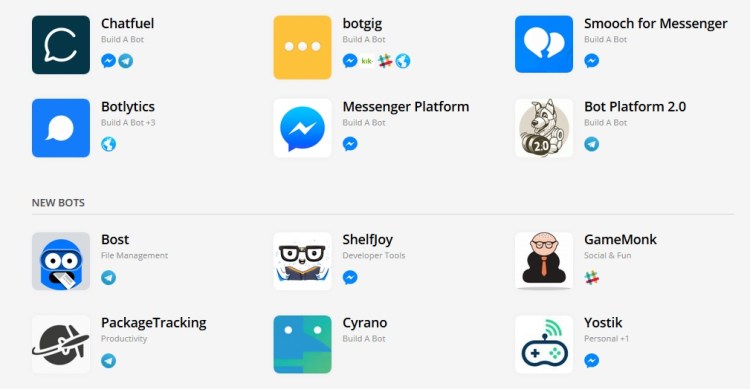If you live and breathe technology, you’re probably hearing a lot about chatbots lately. It seems they are everywhere, and every startup and big company is working on its own bot. Top messaging platforms are opening their doors to bots as well — from Telegram, WeChat, and Slack to the recently announced bot platforms by Facebook and Skype.
Why is it happening? Why now?
Have a look at your smartphone. Which are your three top-used apps? Chances are, at least one is an instant messaging app. I have 55 apps on my phone, six of which are IM apps (WhatsApp, Skype, Skype for Business, Messenger, Hangouts, and Telegram), and I actually use all of them. Over 2.5 billion people have at least one messaging app installed, and three of the top 10 all-time worldwide iOS app downloads are messaging apps. In fact, in 2015, messaging apps have surpassed social networks.
So, if our time is spent on messaging apps, it follows that businesses and services will want to meet us there.
Microsoft CEO Satya Nadella said last month, “Bots are the new applications.” And it’s true. In the early days of the Internet, browsers were the platform, and websites were built to leverage this platform. When mobile became a key platform, apps were the way we leveraged it. Today, as we spend more time in messaging apps, it is becoming the new common platform. And bots are how we’ll leverage it.
In the early days of the Internet, more and more websites started to appear. Some of these websites were relevant and useful, but most of them were actually junk. Search engines solved the discovery problem for users – helping us find what we need and directing us to top-ranked websites, filtering out the noise.
A similar process happened with mobile apps. The app stores help us find the apps we need based on the apps’ content, rating, usage, and other parameters.
As the bots scene takes over, we’ll be flooded with bots. Most of them will not really be valuable to most users, so we’ll see solutions emerging to help with bot search and discovery.
There are first steps in this arena: Websites like Botlist are trying to become the app stores for bots across all platforms. And at Microsoft, we introduced Cortana as an agent for discovering bots on Skype, for example.
Not a complete solution
Since AI is becoming more and more realistic and more capable of understanding and responding appropriately to a user’s intent, the idea of having chatbots instead of real human beings is starting to make sense. Chatbots can allow businesses to become more cost-effective and automate their existing processes.
Still, just as with web sites and with mobile apps, bots won’t cover every use case. While many services are a perfect fit for moving from an app to a bot, some will have to remain apps in order to provide high value to the user. While ordering a pizza or a taxi might work best with a bot, we’ll probably continue using navigation apps to get rich, live navigation directions.
 Chatbots also enable a new paradigm, where the entity chatting with the user can be a human or a bot, or even both of them. This synergy doesn’t exist today: You can use an app or a website to order a pizza, but if you have a special question or requirement you’ll have to call the pizza place and talk to a human being. On a conversational canvas, you can ask whatever you’d like; the response might be provided by a bot or a human, and you won’t even be aware which of the two it was.
Chatbots also enable a new paradigm, where the entity chatting with the user can be a human or a bot, or even both of them. This synergy doesn’t exist today: You can use an app or a website to order a pizza, but if you have a special question or requirement you’ll have to call the pizza place and talk to a human being. On a conversational canvas, you can ask whatever you’d like; the response might be provided by a bot or a human, and you won’t even be aware which of the two it was.
In the last few months, chatbots have become the new buzzwords in the tech industry, but this is only the beginning. We’re in the midst of the bot revolution, and I’m definitely excited to see it taking shape.
Shira Weinberg is a Senior Product Manager at the Cortana Experiences team, Microsoft.


